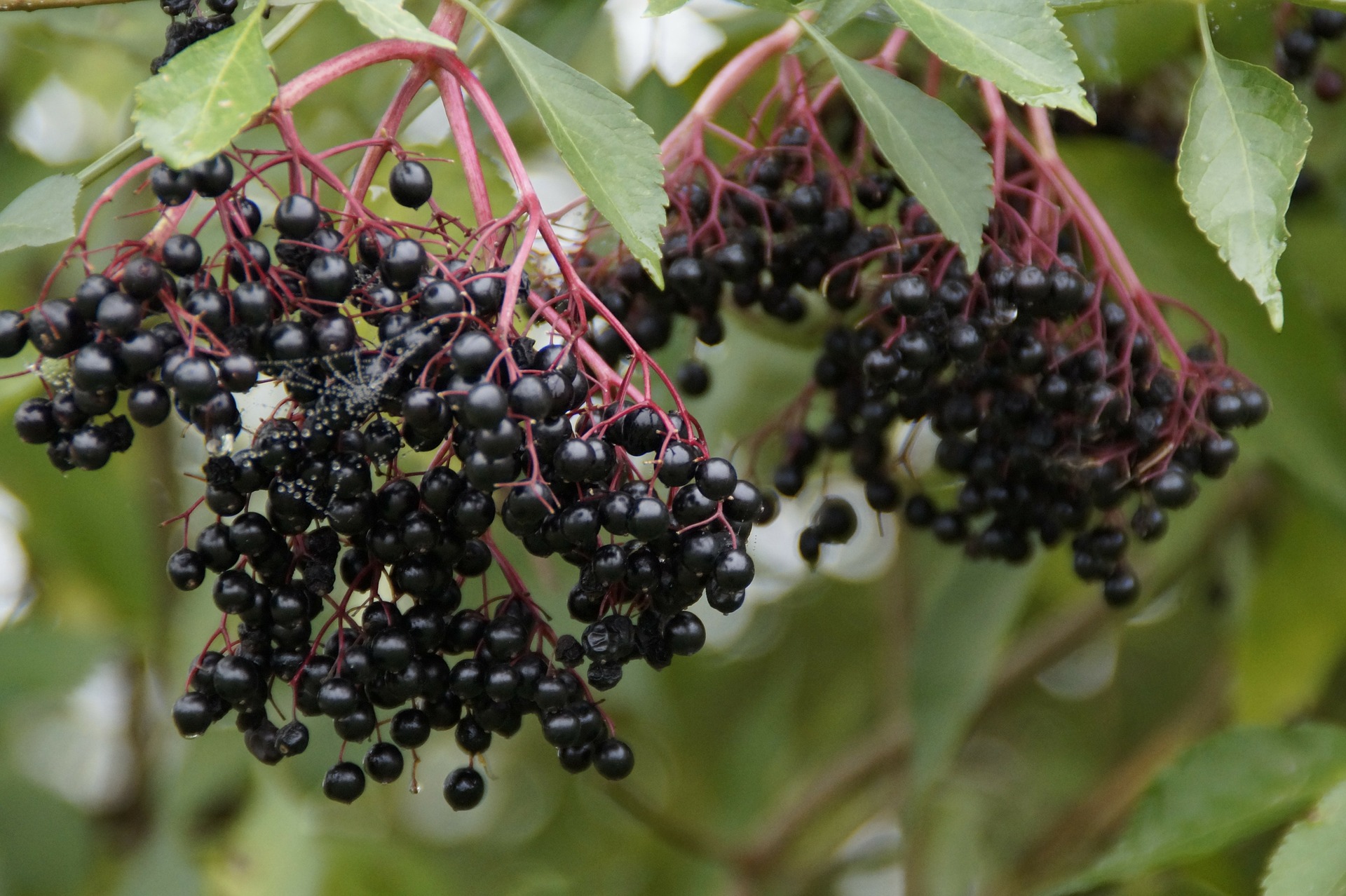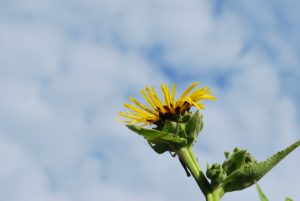Links contained in this post and elsewhere on my website may include affiliate links. When you make a purchase through these links, I earn a commission at no additional cost to you. I only link to products and services that I love - and that I think you will love, too!
I recently saw an article about elderberry making the rounds online. It’s called “When Not to Use Elderberry: Using a Little Discernment.” If you read it, you may be left wondering, “Wait. . . Is elderberry safe during pregnancy? Is elderberry safe during flu?” I know it initially sent me running back to my books wondering if I had it all wrong! So, I decided to share what I know and why it’s a little different than what she presented in her article.

In the article, the author makes a case that she doesn’t feel comfortable recommending elderberry to women who are pregnant. She also seems to be afraid that elderberry could contribute to a rare phenomenon called a cytokine storm.
She bases this on elderberry’s influence upregulating certain aspects of the immune system. The ones she focuses on are the pro-inflammatory cytokines, IL-6 and IL-8. She posits that this might be an issue because, in some strains of flu, the immune system may become overactive. This could result in an immune system event called a cytokine storm.
I’d like to offer an alternative perspective for curious readers, because I don’t believe her article does a good job presenting all of the facts. It’s very well-intentioned. It sounds very scholarly at first read. However, it ignores a few key things about elderberry and immunity.
Elderberry and Cytokine Regulation
To begin with, the article does not address that elderberry shows considerable anti-inflammatory activity and appears to act as an immunomodulator. If you aren’t familiar with the term immunomodulator, it basically means a substance that the body seems to use to increase production (upregulate) or decrease production (downregulate) aspects of the immune system as needed.
Like most herbs that have a measurable influence on the immune system, elderberry’s role is actually quite complex. This is especially true when it comes to elderberry and the immune system’s cytokine production. According to herbalist Stephen Harrod Buhner, in his book Herbal Antivirals: Natural Remedies for Emerging and Resistant Viral Infections, elderberry
“…tends to act in the body as a cytokine modulator; it increases the body’s production of IL-10 if it is taken during an infection, downregulating the levels of other cytokines as necessary, but if taken early in the disease process it inhibits viral upregulation of IL-10 and increases antiviral cytokine production and activity.” (p. 166)
So calling elderberry out for pro-inflammatory cytokine upregulation is a far cry from the full story.
Cytokine Cascades
Another thing I found problematic with the article was the way cytokine cascades were discussed. First off, to clarify:
A “cytokine storm” is actually just a more clinically specific (and in this case, hyped-up) name for sepsis. And lots of things can cause sepsis. Not just flu.
I found this statement in the article particularly upsetting, because it simply isn’t true:
“Also, you never know when you are going to be exposed to a virus that might be associated with the storms and they really don’t know why they happen.”
However, the mechanism behind “cytokine storms” is actually reasonably well understood when it comes to flu. Certain viruses, during replication, disable some aspects of the immune system and increase production of other aspects. Again to quote Buhner, because he puts it very succinctly:
“Interferon-gamma is a type two interferon, sometimes called macrophage-activating factor. It is this IFN that occurs during severe influenza. By stimulating it, the virus initiates a positive feedback loop in the cytokine process that leads, in severe infections, to cytokine storms.” (p. 31).
Her statement that a virus might be “associated” with the storms is also a little misleading. Here’s why: sepsis is not really about a specific virus at all.
For example, sepsis can occur from food poisoning, pneumonia, or a urinary tract infection. Toxic Shock Syndrom (TSS), which is connected to tampon use, is a form of bacterial sepsis. Autoimmune conditions like lupus, and certain types of cancer can cause sepsis. Sepsis can even be caused by fungal or parasitic infections. There may even be genetic components that predispose someone to sepsis.
However, none of that means sepsis is common in healthy people. According to the Mayo Clinic, most people recover from mild sepsis- they have more information about risk factors and pre-existing conditions here.
A Side Note About Pneumonia
At another point in the article, she seems to equate pneumonia with a cytokine storm. And boy, do we need to clear that up right now. To quote from the article again:
“Stanford physician Catherine Blish has studied the hyperinflammatory response to severe influenza in pregnancy extensively attempting to understand why many pregnant women become extremely ill when exposed to influenza. She has stated that abnormally elevated chemokine levels common in pregnancy draw too many white blood cells to the lung. “That’s a bad thing in a lung where you need air space.” Getting the flu during pregnancy, especially pandemic strains such as those that caused the pandemics of 1918, 1957 and 2009, carries a heightened risk for pneumonia and death.”[ii]
What she’s talking about here is a cytokine storm.”
However, pneumonia and a cytokine storm are not at all the same thing. Flu often causes more fluid in the lungs, regardless of who gets it. It’s a by-product of the viral replication process and the immune response. And yes, inflammatory cytokines. But not always a cytokine storm. To use myself as an example, I had the flu last week. I had really bad pneumonia as a result. I did not have a cytokine storm.
So What Made the 1918 Flu Epidemic So Deadly?
There’s also some debate about what made the 1918 pandemic so deadly. It might have been cytokine storms. It might not.
For example, some researchers posit that the 1918 strain of flu was so deadly to young people because those born within the years 1880-1900 had not been exposed to anything similar to an H1N1 strain before. Thus, they were prone to particularly severe infections. Their immune systems became overwhelmed and led to cytokine storms.
In this case, perhaps, the cytokine storms resulted in severe, sudden onset fatal pneumonia from blood and fluid in the lungs. Again, that’s not necessarily because of the virus per- se.
It’s may involve the host’s immunity and prior exposure. However, it’s also important to note that respiratory failure from flu tends to come on suddenly – and that’s also not the same as sepsis.
Respiratory failure from flu is sometimes called Acute Respiratory Distress Syndrome (ARDS). For more on respiratory failure (which can result either from pneumonia, sepsis, and/or pre-existing conditions), risk factors, and flu, Mayo clinic has a thorough article.
Other researchers suggest that it wasn’t cytokine storms that killed the most people in 1918 – it was secondary bacterial infections. In 1918, antibiotics hadn’t yet been invented. If the 1918 strain caused severe pneumonia, it would have increased the risk for secondary bacterial infection.
Is elderberry safe during pregnancy?
We’ve explored a more nuanced approach to elderberry and the immune system. That leaves us with the other question raised by the original article. Is elderberry safe during pregnancy?
I tend to defer in all things herbal and pregnancy-related to herbalist, midwife and MD, Dr. Aviva Romm. She’s literally written a textbook about herbalism and women’s health, and her website and books are an incredible resource on these topics.
Dr. Romm’s approach is to avoid using most herbs during the first trimester (which is when the baby is potentially most sensitive to substances that might disrupt normal development).
So what does she say about elderberry? According to Dr. Romm, elderberry is safe for 5-7 days during pregnancy if you have the flu. However, she notes that you do need to seek medical attention if you are pregnant and think you have the flu. Being pregnant means you have a higher risk for complications from the flu.
For an excellent article about herbs and safety during pregnancy, Dr. Romm has it here: Herbs in Pregnancy: What’s Safe, What’s Not.
An Herbalist’s Perspective on Flu and Coronavirus
Stay tuned for my upcoming series on herbalism, immunity, and viral challenges. There’s a lot of hype on these topics floating around the internet lately, so join me to get some clarity about how the immune system works, how to leverage herbs and healthy living strategies, and what categories of herbs are potentially useful during cold and flu season. Here’s a link to my post on Pandemic Preparedness and Coronavirus from an herbal perspective.
All the best,
Agatha
(Updated to provide more information on sepsis and respiratory failure on 02/29/20).
(Updated to include links to articles by other herbalists on 3/19/20)
Articles by Other Herbalists About Elderberry and Cytokines
Other herbalists are writing about the elderberry controversy. I will keep posting links as I find them!
Aviva Romm, MD
Dr. Romm now has an article about COVID-19 that also addresses elderberry. She says very bluntly, “The association with elderberry and cytokine storm is implausible; elderberry is not able to cause cytokine storm whether used for prevention or infection, or during infection.”
Read it: COVID-19 Prevention: From Common Sense to Natural Remedies (and Avoiding Nonsense
Paul Bergner, Medical Herbalist
Herbalist Paul Bergner, North American Institute for Medical Herbalism, has weighed in. He includes a detailed look at many aspects of the issue.
Read it: Herbal Medicine and Cytokine Storm in Respiratory Infection.
Maria Noel Groves, RH (AHG)
Maria Noel Groves, herbalist and author at Wintergreen Botanicals, has an elder monograph with her perspective on using the berries.
Read it: Elder and Immune Health.
The Herbal Academy
The Herbal Academy offers their perspective and links to other herbalists.
Read it: Safety Discussion on Elderberry and COVID-19

